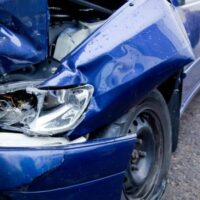Special Issues In Uninsured Motorist Accidents

These wrecks are very common in Florida. The Sunshine State has one of the highest percentages of uninsured drivers in the country. On a related note, most drivers are under-insured. Florida also has one of the lowest insurance minimum requirements in the country. Many drivers have less than $50,000 of personal injury coverage. The average injury-related medical bill is substantially higher than that.
Just like all other accident victims, these individuals need and deserve compensation. This compensation usually includes money for economic losses, such as medical bills, and noneconomic losses, such as pain and suffering. Because of the aforementioned issues, a Tampa uninsured driver accident attorney must work extra hard to obtain this compensation.
UM/UIM Claims
Many drivers have uninsured and underinsured motorist coverage. The premiums are generally small and the coverage limits are usually large. Given the aforementioned driver insurance issues in Florida, there’s a good chance that, if you are involved in a serious collision, the other driver might not have enough insurance to pay fair compensation.
Sometimes, UM/UIM coverage is gap coverage. If the tortfeasor (negligent driver) had $50,000 of insurance and the victim’s total economic losses, including medical bills, were $75,000, the UM/UIM policy would probably pay $25,000, assuming the victim’s policy limit was at least that high.
If the insurance company refuses to pay, the dispute would most likely go to arbitration. In Florida, it’s usually illegal for people to sue their own insurance companies. Arbitration is like a private trial. Since the insurance company is anxious to keep a paying customer happy, these claims usually settle on victim-friendly terms.
Other times, a UM/UIM policy is substitute coverage. That’s usually true if the tortfeasor had no insurance or fled the scene. The same basic principles apply.
A few words about hit-and-run accidents. Even if the tortfeasor immediately flees the scene, an attorney is often able to identify the vehicle’s owner. A tiny bit of evidence, like a partial plate number, might be enough. If that’s the case, an attorney can usually hold the owner liable for the full measure of damages, assuming the owner has enough insurance.
Third Party Liability
Frequently, a third party is financially responsible for damages. In these situations, the tortfeasor’s insurance coverage, or lack thereof, is basically irrelevant.
If a commercial operator, like a truck driver or Uber driver, caused the wreck, the respondeat superior theory often applies. Employers are generally responsible for damages if their employees are negligent during the course and scope of their employment.
The “employee” prong is sometimes an issue. Frequently, commercial operators are non-employees, like independent contractors or owner-operators. However, these individuals are employees for negligence purposes, at least in most cases.
Dram shop alcohol provider liability often comes up in alcohol-related crash cases. Private clubs, bars, and other commercial providers are vicariously liable for damages if they knowingly sell alcohol to people who are habitually addicted to this substance. Evidence of habitual addiction includes statements the customer made and prior purchases at that establishment.
Negligent entrustment owner liability is a possibility as well. Owners are liable for damages if they knowingly allow incompetent operators to drive their motor vehicles. The victim/plaintiff must prove knowledge by a preponderance of the evidence, or more likely than not.
Work With a Compassionate Hillsborough County Lawyer
Car crash victims are usually entitled to significant compensation. For a free consultation with an experienced personal injury attorney in Tampa, contact Mark H. Wright, PLLC. Attorneys can connect victims with doctors, even if they have no insurance or money.
Resource:
iii.org/fact-statistic/facts-statistics-uninsured-motorists
